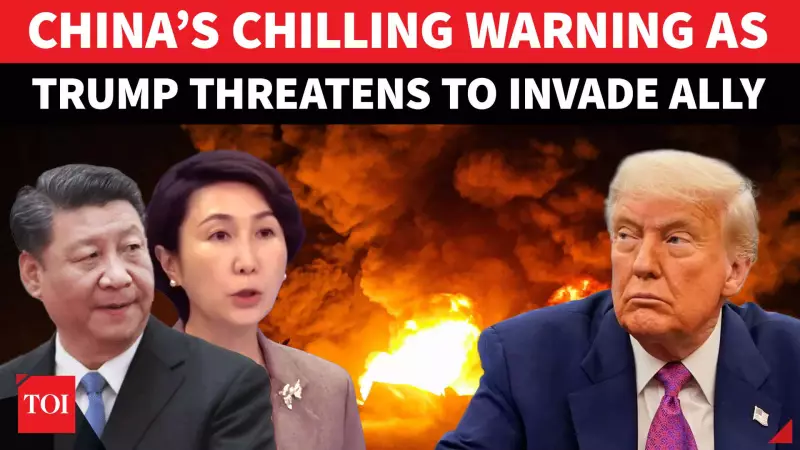
International diplomatic circles are buzzing after China delivered a thunderous warning to former US President Donald Trump, responding to his controversial statements about potential military action in Nigeria. The escalating verbal confrontation has sent shockwaves through global politics.
The Provocative Statement
Former President Donald Trump sparked the international incident with threatening remarks about taking aggressive military action in Nigeria. His comments suggested a "guns blazing" approach that immediately drew condemnation from multiple quarters.
China's Forceful Response
Beijing didn't mince words in their reaction, delivering a clear and powerful message: "Don't you dare." This direct challenge to Trump's threat demonstrates China's growing assertiveness in African affairs and their willingness to confront American foreign policy positions.
Geopolitical Implications
The exchange highlights several critical developments in international relations:
- China's expanding influence in African nations and their readiness to act as protectors
- Ongoing tensions between the US and China extending beyond trade to military and diplomatic spheres
- Nigeria's position as a focal point in great power competition
- The continued impact of Trump's statements on international relations even after leaving office
Regional Reactions
African nations are watching the developments closely, with many expressing concern about becoming pawns in larger geopolitical games. The strong Chinese response has been noted by regional analysts as potentially shifting alliances and influence patterns across the continent.
This diplomatic confrontation comes at a sensitive time for US-China relations, with both powers increasingly competing for influence in developing nations across Africa and Asia. The blunt language used by Chinese officials suggests a new level of confidence in challenging American foreign policy positions directly.





